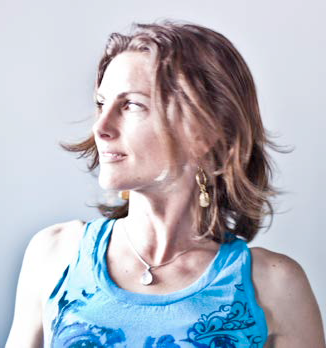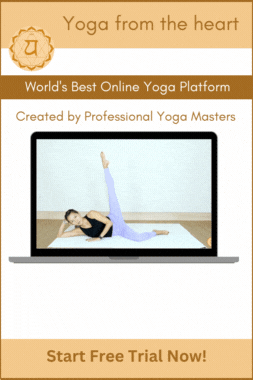Of all the yamas and the niyamas I’ve explored in my life so far, this one made the most sense simply by looking at the word.
Contentment. Yip. Know what that means.
I didn’t need to go and hunt through all my books reading what various yoga teachers and yogic scholars have written about contentment. I didn’t need to search on Google to explore the different nuances.
I got it. Out of the box.
And I need it. Oh do I need it so bad.
Wait … is that an oxymoron – to be yearning or seeking for contentment, which by its nature is being content with the now just as it is?
As Patanjali’s Yoga Sutras succinctly puts it:
Contentment brings unsurpassed joy.
Yoga Sutra 2:42
Unsurpassed joy – wow! That is quite the promise. I want that! Where is it? How do I get it? What will make it happen?
And therein lies the paradox of contentment and unsurpassed joy. It’s not out there. It can’t be forced. It can’t be found. It can’t be made to happen.
Contentment is a practice of being ok with what is before us right now.
It’s the sound of my breadmaker whizzing up some carraway and rye bread for lunch. It’s Fat Freddy’s Drop on my stereo as I write. It’s the play of light on the couch chateau gonflable in front of me, the sun on the mountains out my window, the taste of my Mi Chai tea, the slight ache in my upper back from a delicious asana practice this morning.
It’s feeling and hearing and smelling and tasting and seeing all of that and that being enough.
There is no yearning for something else.
There is no desire to be elsewhere.
There is nothing more needed to make this moment ok, or enough.
That’s santosha.
Sounds like I’ve got it sorted eh?
Oh how I wish. In yet another paradox of our paradoxical reality, while santosha might be the easiest niyama to understand directly, it doesn’t make it any easier to practice. Suacha is far easier for me. I delight in moving toward simplicity and cleanliness in body, mind and soul.
But santosha … oh no, my ambitious, future-focused, strong-willed mind delights in planning my next move.
I’ll be walking around the Glenorchy Lagoon, early morning with my son. The mountains are bathed in light, the lagoon is crystal clear and mirror-calm. Swans, ducks and geese are gathered to paddle, fish and quack. Me, I’m dreaming up my next article, planning a yoga tour, brainstorming my next book, writing future speeches. I’m anything but content, or present. I’m on to the next thing already – bring me the next creative project, the next success, the next high. Bring it yo!
That ain’t contentment. No, it’s the antithesis of contentment. But that’s my natural inclination in life.
So I notice my feet are walking the boardwalk around the lagoon but my mind is dreaming up the future. I pause and breathe all the way down into my toes and drop my consciousness down into my body. I notice the smell of autumn tinging the late summer’s air. I hear my son’s chatter as he tells himself a story and sends a rocket to the moon using nothing more than his hands as toys.
I remind myself. This is enough. This is perfect. All is wonderful. And for a few precious moments I delight in contentment and notice a spaciousness open up within me. Joy ventures a nose forth from its hiding place deep within my heart.
Over and over it goes.
I cultivate contentment.
I plan for the future.
I cultivate.
I plan.
This is the practice, a constant noticing and return to the present moment through being completely ok with what is. And you know what, I’ve got it easy right now, I’ve got so much to be content with … how can I not be content with my life right now? (More, more, give me more, I want more!)
But maybe it’s a habit, born of a difficult life of struggle, of long years when I was miserable. I didn’t know about contentment then. Oh I may have read about it in one of my many yoga books, but I didn’t know about it.
Then, I was so eager to change what I was experiencing and fix myself and my life, step by step. And I did. But I sometimes wonder if I’d been able to accept my life as it was, and myself as I was, that if that road out of difficultly and struggle would’ve have melted away and revealed I was already there. That’s the true test of contentment. Being ok with difficult circumstances.
Being ok with trauma and mental struggles and physical challenges and horrible jobs and prison and general awfulness.
How does one do that? How do you find contentment in the middle of any of that?
When I think back to being in the middle of those circumstances, I know the one belief that would have helped me drop into contentment even while opening to change so things would shift.
A belief that I was ok.
That I, deep down, in my essence, was OK.
That would have helped. That would have led to a deep feeling of contentment because if deep down I was ok, then I wasn’t being affected so much by those circumstances, They could come and go, and I would remain.
That’s a difficult practice.
It’s a strong practice.
It reminds us that contentment is a choice – it’s a way we choose to be – not something brought about by the alignment of perfect circumstances.
When I get that job, sell that many books, land that speaking gig, marry that man, take that holiday … then I’ll be content.
No. No. No. And – no!
Contentment starts here and now, in the present. It starts by noticing the judgments that we’re having about this present moment. I like this/don’t like this. I want this/don’t want this. This is good/this eastyl is bad. Those are the judgements of the mind that separate us out from reality as it is and disconnect us from the well-spring of joy within.
As we begin to notice our judgments of the present moment, we’re able to work with them.
We can choose to make peace with whatever is in front of us right now. It’s all we can do – it’s already here, we can’t stop it or change it or make it different. All we can do is choose resistance, or choose peace. Make it a choice, and own it.
It doesn’t mean we’re content to stay in harmful or dangerous situations. No, making that choice of space creates space and mindfulness to take actions that can then change our reality. It empowers us, because we’ve stepped into conscious relationship with our life.
That’s the power of contentment.
Be here.
Notice judgments.
Choose peace.
Repeat.















 About the Author
About the Author


 Other
Other